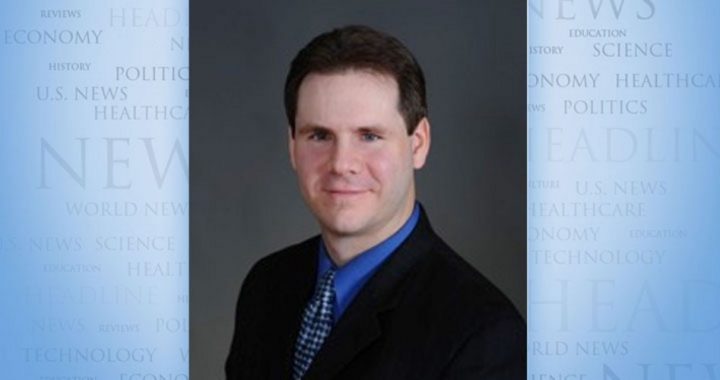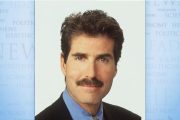
When someone describes his location and says he’s right or left, the obvious answer is “Of what?” It’s interesting that we never ask this in politics.
This could occur to one given the recent headlines after U.K.’s May 7 election, in which the Tories defied pollsters and won a resounding victory. Business Insider wrote, “Liberal Britain just got slaughtered,” while the Independent lamented, “Election results: Britain has become a bluer, looser and less liberal country.” Note that while blue in the U.K. is the color of the “conservatives,” in the United States it’s the color assigned to the liberal Democrat Party — and this similarity is fitting. This brings us to the Telegraph’s Tim Stanley, closer to correct in his election analysis in writing:
The Lib Dems dropped from 56 seats to 8. They polled fewer votes than Ukip and, in Scotland, held only one seat against the Nationalist surge.
… But the defeat of the Lib Dems should not be confused with a defeat for liberalism. On the contrary, liberalism dominates British politics and its influence is so subtly pervasive that it is quite invisible to the naked eye. It is the air that we breathe. Occasionally, we even choke on it.
The phenomenon Stanley touches on is an important one. And it isn’t only relevant in Britain, but in the United States and elsewhere, too. Consider just a few examples of how yesterday’s liberalism has become today’s status quo. While conservatives of yore opposed Social Security, cohabitation, and non-discrimination laws that trump freedom of association, today’s conservatives don’t bat an eye at them. Note that the point here isn’t to convince anyone of the wisdom of accepting or rejecting the above, but only that the aforementioned — once recognized as liberal change — are now accepted as seamless parts of American life.
And so it is always and in everything. When states repeatedly voted not to officially recognize faux marriage some years ago, many considered it a great victory for “conservatism.” It might have been, too, depending on your definition of the term. But it’s much as if put forth as a referendum is the question, “Should men beat their wives?” If the public votes no, should it be seen as a great victory for women’s rights?
Or should one see a red flag because while the question wouldn’t even have been entertained a decade before, it now seems realistic to ask it?
As the recent court rulings and, more significantly, changing public opinion on faux marriage evidence, the “conservative victories” were very fleeting. This is because they weren’t true victories but merely a momentary and defensive political reaction to a changing culture listing and being lost, a culture drifting ever — should we say, “left”? Again, though, left of what?
Further explaining how “liberalism” is the “air we breathe,” Stanley also wrote:
David Cameron, for instance, is a liberal. He has said so. In 2010, shortly after he partnered up with Nick Clegg [recently resigned leader of the Lib Dem Party] in the Downing Street rose garden, Cameron told Andrew Marr that it was not a “forced marriage of convenience” but a coming together of shared values. “I am a liberal Conservative,” he said. And, in government, the happy couple went on to legalise gay marriage, take millions of low paid people out of tax and pursue environmentalism.
Stanley can be viewed as either right or wrong about Cameron, within the context of our provisional terminology. He’s right in the sense that, as I’ve pointed out for years and articulated in 2013 thus, “‘[C]onservatives’ in Western Europe are often our liberals’ ideological soul mates.” Cameron would be a liberal in the United States.
Only, he’s not in the United States.
The point is that “liberal” (left) and “conservative” (right) are relative terms that can only be understood contextually. A “conservative” in the 1950s Soviet Union was a communist, while a contemporary conservative in the United States was staunchly anti-communist. So what definition of “conservative” would a communist (Stalin), European statist (Cameron), and staunch anti-communist (Joe McCarthy) all conform to? The only consistent one there is: “A person who favors maintenance of the status quo.”
Thus, as the status quo changes, so does the nature of the day’s conservatives.
So right or left of what? Answer: The given civilization’s center, which is determined by the consensus views of the people at the time.
There is a problem with this. The Aztecs, who sacrificed thousands a year on bloody altars, had a center; so did the Spartans with their infanticide and institutionalized pederasty. Every civilization does. The relevant question is: Does that center approximate the True Center? (Yes, that’s a read-on tease.)
Recognizing this problem of “right” and “left,” one popular attempt to define the terms in an absolute sense holds that the political spectrum should be viewed as ranging from totalitarianism on the extreme left and complete anarchy on the extreme right. And the ideal government lies somewhere in-between, perhaps three-quarters of the way right, the thinking goes. The problem, however, is that this conception is merely quantitative, not qualitative; it lacks specificity. The Roman Empire actually provided more freedom from government intrusion than Uncle Sam does, with a handful of notable exceptions (such as of freedom of speech and religion). But would we want to live in Caesar’s realm?
There is a saner way to view matters. There was a time, when people still believed in Truth, in which it was understood that there are only two states of being. Not right and left.
Right and wrong.
These were known as orthodoxy and heterodoxy (or, to be wholly unfashionable, “heresy”). That is, since civilizations’ centers change with the wind, defining ourselves relative to our center — and considering such a measure significant — is folly. For the real question is: To what extent is that center centered on Truth? And if a lie is its essence, what lie is it?
Given that most Americans today are relativists and thus don’t believe in Truth, such thinking is certainly alien to them. Relativists are comfortable with relative terms and concepts, such as liberalism and conservatism. People who believe “Man is the measure of all things” only have man’s center as a reference point. But this mentality guarantees inexorable loss for “conservatives” and the death of civilization.
Why? Because the only consistent definition of “liberal” is “a desire to change the status quo.” Liberals are the actuators. They approach the bargaining table requesting a change, and because it’s reasonable to “compromise,” conservatives give them a percentage of what they want. And it doesn’t matter if it’s 50, 25, or only five percent. For the liberals will come back again and again, year after year, asking for more; and, getting a crumb here and a slice there will eventually have the whole loaf.
It’s as if liberals are the engine and conservatives the caboose. Sometimes the engine has more or less fuel and is more or less powerful; sometimes the caboose is heavier or lighter and provides more or less resistance. But while there may be slow “progress” at times and even some stops, the movement is continual and doesn’t cease until the last stop, which is always the abyss. Disconnection from Truth ensures this.
So people are befuddled, and feel betrayed, when Republicans sweep Congress but then fold on ObamaCare, fail to rein in an increasingly imperial presidency, behave impotently in the face of Democrat corruption, and begin to cave on amnesty. “They’re not true conservatives!” is the cry. But they’re actually quintessential conservatives (and politicians). They’re reacting to the changing status quo, that euphemistically labeled “leftward shift” that is actually progress toward the abyss. As an example and much as with Britain’s National Health Service — which even conservative Margaret Thatcher didn’t propose eliminating — ObamaCare is already becoming our status quo. So conservatives are conserving it. Note that to “conserve” means to “preserve.”
Also note that the Founding Fathers didn’t call themselves conservatives. They are correctly known as revolutionaries. And unless we’re revolutionary enough to buck the age’s relativism; believe in Truth, seek it, and not bend an inch on it, we will continue conserving the mistakes of the past — and capitulating to the mistakes of the future.



